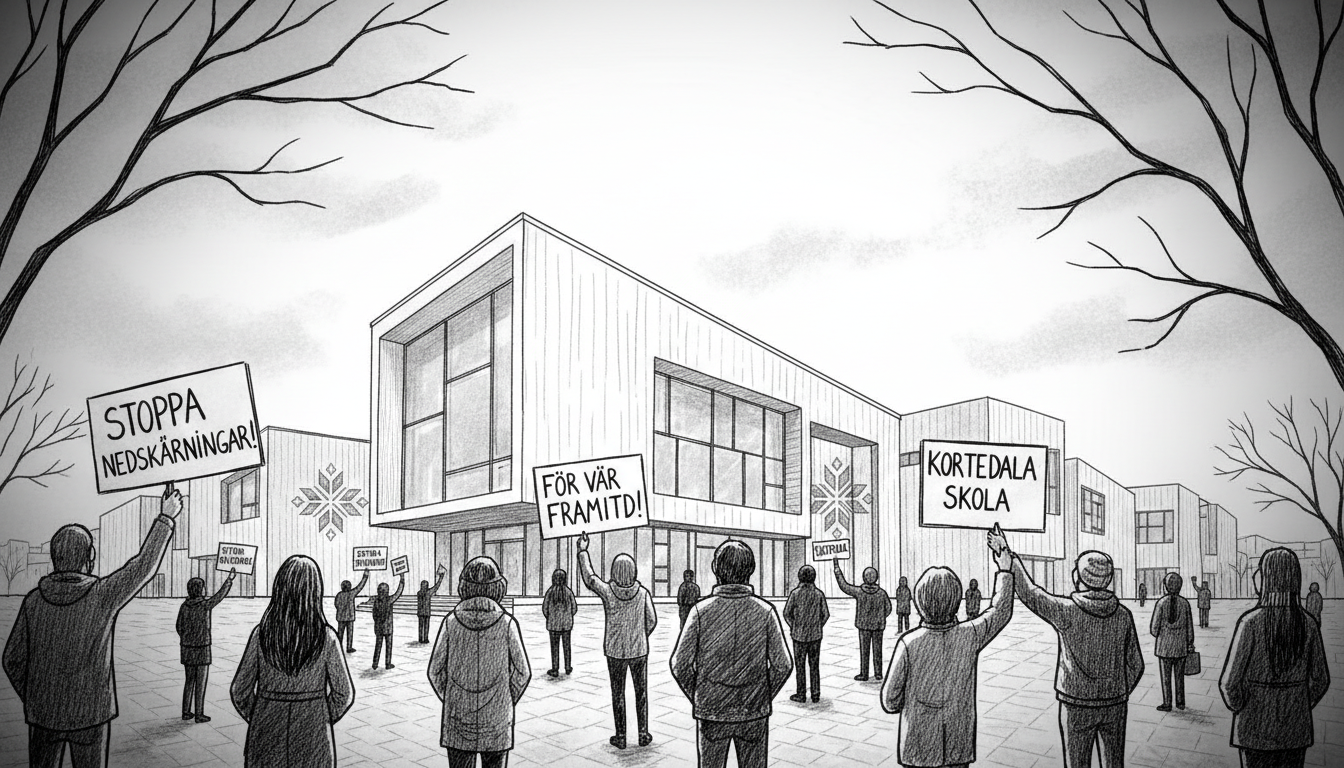Students and parents in Gothenburg's Kortedala district gathered this week to protest planned school budget reductions. The demonstration highlighted growing concerns about educational quality in the area. Participants voiced strong objections to multiple aspects of the proposed changes.
Salam Mawed, a student directly affected by the cuts, expressed frustration about the situation. The young learner said teachers who helped develop academic skills now face potential job losses. This sentiment echoed throughout the protest crowd.
Class sizes represent one major concern for families. Larger student groups could diminish individual attention in classrooms. Parents worry this will impact learning outcomes for children across the district.
Transparency issues also emerged as a key complaint. Community members reported insufficient information about the decision-making process. Many feel excluded from discussions affecting their children's education.
Sweden's education system has faced similar challenges in recent years. Municipalities nationwide grapple with balancing budgets while maintaining school quality. The Kortedala situation reflects broader national trends in education funding.
Gothenburg specifically has experienced several school reorganization attempts. Previous efforts sometimes led to mixed results for students and teachers alike. The current protests suggest lessons from past experiences remain unheeded.
International readers should understand Sweden's decentralized education model. Municipalities control most school funding and operations. This structure creates varying educational experiences across different regions.
Teacher job security concerns extend beyond Kortedala. Education professionals throughout Sweden face similar uncertainties. The situation highlights ongoing tensions between budgetary constraints and educational quality.
What happens next remains unclear. School officials must weigh financial realities against community demands. The outcome could influence similar decisions in other Swedish municipalities.
These cuts arrive during challenging economic conditions nationwide. Many public services face difficult choices about resource allocation. Education often becomes central to these debates across Nordic countries.
The protests demonstrate genuine community engagement with local governance. Swedish citizens frequently participate actively in decisions affecting public services. This tradition of civic involvement remains strong despite current frustrations.
Parents and students await further developments. They hope decision-makers will reconsider the proposed reductions. The community's educational future hangs in the balance.

